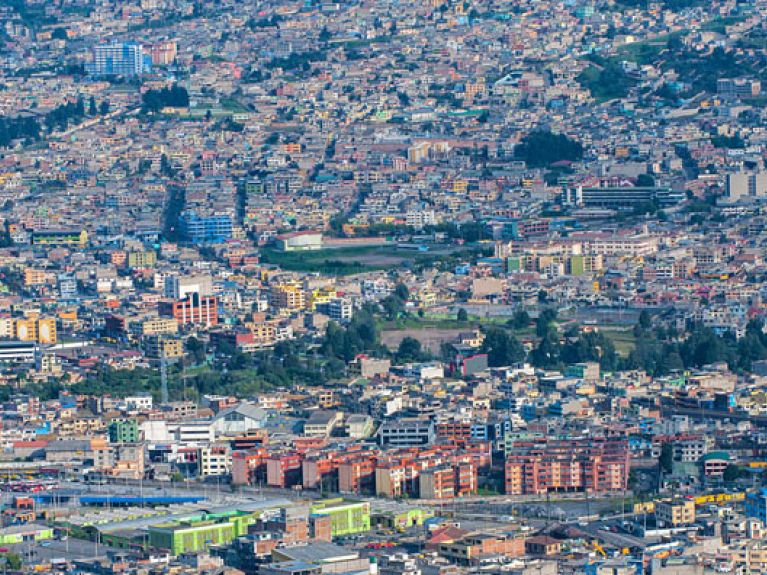Cities of the future
The Habitat III world conference in Quito, Ecuador, aims for a ‘New Urban Agenda’.

Dresden is seen as a pioneer in climate-change mitigation. For example, the city promotes combined heat and power generation – up to 40 percent of CO2 emissions can be saved in this way. A dense district heating network supplies 120,000 housing units with heating and warm water in Saxony’s state capital. Dresden also uses green energy in the field of mobility. The official cars of city administration staff are being replaced by electric vehicles.
Important approaches – because it will be decided in the cities whether the international community meets its climate targets or not. More than half of the people in the world today already live in cities. Urban centres also play a crucial role when it comes to other global issues: Will we succeed in reducing poverty? Will everyone have access to education? The United Nations Habitat world conference puts the spotlight on cities. The aim of the third Habitat conference in October 2016 in Ecuador’s capital Quito is to adopt a ‘New Urban Agenda’, a guideline for urban development over the coming decades.
German Habitat Forum as a driving force
Germany is making an important contribution. At the German Habitat Forum in Berlin in June 2016, international experts jointly developed proposals for the conference in Quito. The organizers were the Federal Ministry for Economic Cooperation and Development (BMZ) and the Federal State of Berlin. The experts at the forum formulated a position paper with six fundamental principles and important topics for the future – for inclusion in the New Urban Agenda. ”Bearing in mind the fact that cities are growing all the time, it is our view that more attention must be paid to what they have to say,“ says Berlin’s Governing Mayor Michael Müller.
Berlin, too, must deal with issues of future-proof urban planning. More than 40,000 people move to Germany’s capital every year. ”Everything has to keep pace with the growing and changing city,“ says Müller. He also sees benefits in this. ”We have a chance to generate fresh impetus for our community and ensure more quality of life and prosperity. We have the potential for this in Berlin.“
UN’s Habitat III world conference from 17 to 20 October 2016 in Quito, Ecuador

